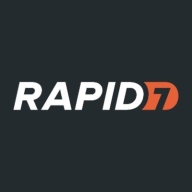

SonarQube Server and Rapid7 AppSpider compete in software quality and security analysis. Based on user reviews, SonarQube has an advantage in code quality features, while AppSpider is stronger in vulnerability scanning.
Features: SonarQube supports over 20 programming languages and allows custom coding rules, pre-commit checks, and strong CI/CD integration, making it useful for holistic code quality assessment. Rapid7 AppSpider is known for its detailed vulnerability reporting and web security with comprehensive international standards compliance, providing a valuable tool for compliance and risk management.
Room for Improvement: SonarQube users suggest enhancements in analysis speed, multi-language project configuration, and improved security scanning capabilities. Users feel better integration with tools like JIRA and more efficient plugins could be beneficial. For Rapid7 AppSpider, users report false positives and express the need for improved integration and stability. Mobile application scanning and more understandable reports are also desired.
Ease of Deployment and Customer Service: SonarQube offers flexible deployment options including hybrid and on-premise environments, although official support is mainly for paid versions. It benefits from active community support. Rapid7 AppSpider can be deployed in both cloud and on-premise environments, but users note slower response times for support queries and integration setups.
Pricing and ROI: SonarQube offers an open-source version with commercial plugins available for additional capabilities. While professional and enterprise editions incur costs, their comprehensive features contribute to perceived ROI. Rapid7 AppSpider requires a purchased license, which can be costly at an enterprise level, but it provides effective ROI for its web security scanning and vulnerability reporting features.
| Product | Market Share (%) |
|---|---|
| SonarQube Server (formerly SonarQube) | 19.7% |
| Rapid7 AppSpider | 0.5% |
| Other | 79.8% |


| Company Size | Count |
|---|---|
| Small Business | 11 |
| Midsize Enterprise | 2 |
| Large Enterprise | 1 |
| Company Size | Count |
|---|---|
| Small Business | 32 |
| Midsize Enterprise | 21 |
| Large Enterprise | 75 |
SPAs, APIs, mobile—the evolution of application technology is measured in months, not years. Is your web application security testing tool designed to keep up? AppSpider lets you collect all the information needed to test all the apps so that you aren’t left with gaping application risks.
Our dynamic application security testing (DAST) solution crawls to the deepest, darkest corners of even the most modern and complex apps to effectively test for risk and get you the insight you need to remediate faster. With AppSpider on your side (or, rather, all of your sides), you’ll be able to scan all the apps today and always be ready for whatever comes next.
SonarQube Server enhances code quality and security via static code analysis. It detects vulnerabilities, improves standards, and reduces technical debt, integrating into CI/CD pipelines.
SonarQube Server is a comprehensive tool for enhancing code quality and security. It offers static code analysis to identify vulnerabilities, improve coding standards, and reduce technical debt. By integrating into CI/CD pipelines, it provides automated checks for adherence to best practices. Organizations use it for code inspection, security testing, and compliance, ensuring development environments with better maintainability and fewer issues.
What are the key features of SonarQube Server?Many industries implement SonarQube Server to uphold coding standards, maintain security protocols, and streamline their software development lifecycle. In sectors like finance and healthcare, adhering to regulations and ensuring reliable software is critical, making SonarQube Server invaluable. It is often integrated into CI/CD pipelines, ensuring that code changes meet set standards before deployment. This approach enhances productivity and maintains compliance with industry-specific requirements.
We monitor all Static Application Security Testing (SAST) reviews to prevent fraudulent reviews and keep review quality high. We do not post reviews by company employees or direct competitors. We validate each review for authenticity via cross-reference with LinkedIn, and personal follow-up with the reviewer when necessary.